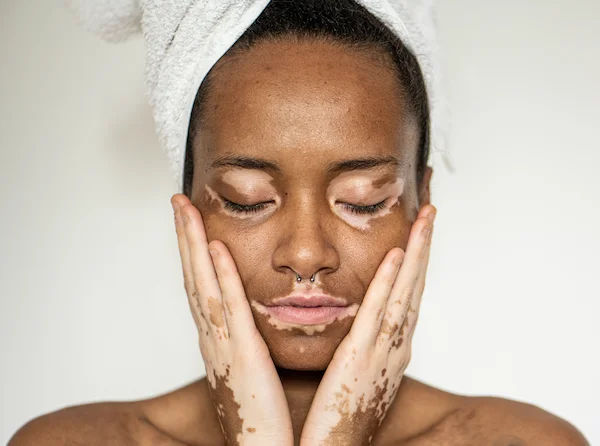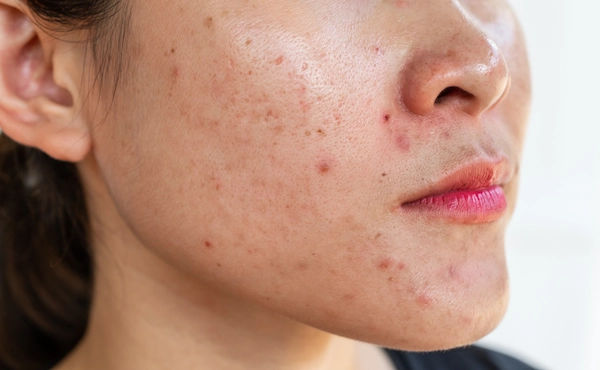- Male
- 23 Years
- 22/01/2025
Hey, so I've noticed over the past 56 days that the skin on my testicle sack is getting dry and scaly. When I'm bathing, a thin scaly layer peels off. I've always been good with hygiene, so I'm not sure why this is happening. Today it started itching, and when I rubbed it gently, it felt like a burning sensation, kind of like a paper cut. After cleaning it in the shower, the whole area turned red. I've tried using creams like itch guard, dermigo5, and luliconazole which I got from the medical store, but nothing seems to be helping. I felt a bit embarrassed to go to the doctor in person. I'm just worried about what's going on. Do you know what this could be and should I see a dermatologist or a sexologist about it?
Answered by 1 Apollo Doctors
You may be experiencing a fungal infection in the skin of your scrotum. The burning sensation, dryness, scaliness, and redness are common symptoms of such an infection. I recommend using an antifungal cream like Clotrimazole 1% twice daily for 2 weeks. Make sure to keep the area clean and dry. If the symptoms persist or worsen, it would be best to consult a dermatologist for further evaluation and management.
Dr. Shubham Suggests...
Consult a Dermatologist
Answered 04/07/2025
0
0

Ask Apollo
AI powered Health Chatbot
-
Understanding Your Symptoms
- Your symptoms suggest a skin condition affecting the scrotum, possibly due to dryness, irritation, or infection.
-
Possible Causes
- Conditions like eczema, fungal infections (e.g., tinea cruris), or contact dermatitis are common. Hygiene alone may not prevent these.
-
Why a Dermatologist is the Right Specialist
- Dermatologists specialize in skin conditions and can provide accurate diagnosis and treatment. A sexologist is less suited for these symptoms.
-
Diagnostic Approach
- A dermatologist may perform a physical exam and possibly skin tests to identify the cause.
-
Treatment Options
- Treatment might include prescription creams or medications. Avoid self-medicating without a proper diagnosis.
-
When to Seek Medical Attention
- If symptoms persist or worsen, consult a dermatologist promptly.
-
Overcoming Embarrassment
- It's common to feel embarrassed, but seeking professional help is important. Healthcare providers maintain confidentiality.
-
Next Steps
- Prepare for your dermatologist visit by noting symptom details and any treatments tried. Expect a thorough examination and discussion of treatment options.
Recommended next steps
Consult a Dermatologist
Answered 20/08/2025
0
0

More Dermatology Health Queries
View allI've been struggling with Exfoliative Cheilitis on my lips for the last 5 years and I'm really looking for some help. What can I do to treat this from the inside and the outside? I'm desperate to find a way to get rid of this condition. Any advice would be greatly appreciated.
To treat it internally, you can try taking Vitamin B supplements to support lip health. Externally, you can apply a thin layer of hydrocortisone cream to reduce inflammation and promote healing. Additionally, using a lip balm with sunscreen protection can help protect your lips from further damage. For internal treatment, you can take Vitamin B complex supplement daily. For external treatment, apply hydrocortisone cream on the affected area. Use a lip balm with sunscreen protection during the day to protect your lips.
Answered by 1 Apollo Doctors
I've been struggling with Hives for about two years now, and the itching and skin inflammation are just unbearable sometimes. My doctor suggested I take Montek LC, and I usually take a tablet every couple of days when things get really bad. Is there any way to completely get rid of this condition? I'm hoping for a more permanent solution. Can you share any advice or treatments that might help?
Yes you can have it no problem
Answered by 1 Apollo Doctors
I'm really confused about what's happening with my skin lately. I had a fungal infection around my waist and was taking Zyrtec tablets along with using several creams. The infection cleared up, but now every time I stop taking the Zyrtec, I start itching all over my body. When I take it again, the itching stops. Why does this keep happening?
u continue medicine
Answered by 1 Apollo Doctors
Disclaimer: Answers on Apollo 247 are not intended to replace your doctor advice. Always seek help of a professional doctor in case of an medical emergency or ailment.





